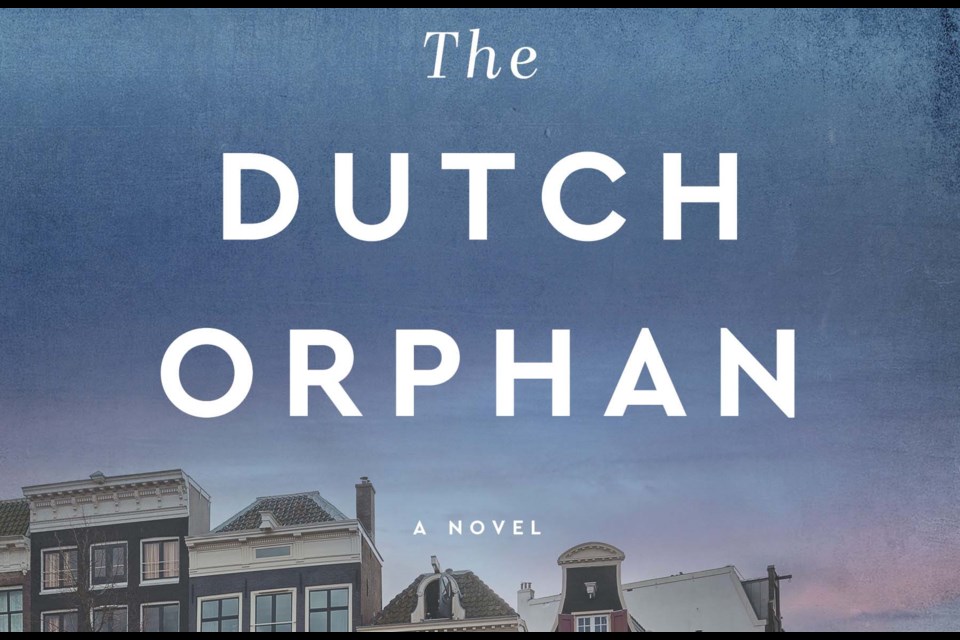Nearly 20 years ago, novelist Ellen Keith’s parents pulled their elementary school children out of traditional schools, and spent six months travelling around Europe. Call it world-schooling, life learning or education adventuring, the diversity of experiences changed Keith’s life in the best possible way.
Driving an old Westfalia camper van, the St. Albert residents camped across Europe visiting battlefields and landmarks such as Anne Frank’s house. One of the family’s destinations was a French village where one of Keith’s great uncles, an RCAF pilot crashed. In addition, her grandparents, grew up under the Nazi occupation in the Netherlands.
“My grandparents survived the war, but my grandmother lost a brother. At the time, a lot of young men were forced into labour camps in Germany. He went into hiding to avoid the callups, but didn’t make it,” said Keith.
The 2007 Bellerose High graduate would go on to obtain a degree at the University of Alberta in history focusing on the Second World War and Holocaust Studies. She followed it with a Master of Fine Arts in creative writing from the University of British Columbia.
“The Holocaust was just an offshoot. I was more interested in learning personal stories rather than battle plans. My studies on the Holocaust were natural since I had a personal connection. That trip stuck with me all these years.”
Currently she now lives in Amsterdam as a recognized world writer with two books under her belt. Her 2018 book release, The Dutch Wife, was a winner of the HarperCollins/UBC Prize for Best New Fiction. It became an instant international bestseller reaching #1 on the Globe and Mail’s bestseller list and #12 on the Publishers’ Weekly List in the United States. In a short five years, The Dutch Wife has been published in the Netherlands, Czech Republic, Portugal, Italy and Serbia.
Keith returns to St. Albert virtually on Sunday, June 25 as a special STARFest guest. She will discuss the April 2023 release of her second book, The Dutch Orphan. Best-selling historical fiction writer Elinor Florence will host the event.
The setting is Amsterdam 1941, the start of the Nazis invasion into the city. Two sisters who were once very close find themselves on opposite sides of the war as one secretly adopts a Jewish baby while the other is married to a Nazi sympathizer.
Johanna loves music and is shocked when her Jewish friends are no longer permitted to play onstage. An idealist, she helps to organize the Artists Resistance, an underground network that books Jewish musicians at house concerts by friends. Even though she doesn’t want children, she adopts a Jewish orphan headed for deportation.
Her sister Liesbeth instead is entrenched in a toxic marriage with a man who actively supports the Dutch Fascist Party. She knows Johanna is part of the Resistance and is torn by her loyalties. And when a charming, more deadly member of the Dutch Fascist Party desires Lisebeth, her problems deepen.
Once in Amsterdam, Keith’s interest in personal stories from the war led her to meet people who were either in the resistance or lost members of their families in the Holocaust.
“Also just cycling around the city there are signs of war. Many buildings are virtually unchanged. There’s the SD – the Sicherheitsdienst. Everybody calls it SD. It was the headquarters of the intelligence branch of the Nazi Party. Now they’ve turned it into a school. From the outside it looks the same. But where the cells were in the basement used for torture, they’ve turned into classrooms. For me this is constant living history, and for me growing up in St. Albert, this is very different.”
She notes that Second World War novels, both fiction and non-fiction, saturate the publishing world.
“It’s very easy for dramatic purposes to create black and white stories of heroism. But the Dutch resistance was blown out of proportion. For everyday Dutch citizens there were three options. You could actively resist. You could collaborate with Nazis for business purposes or you could keep your head down and lie low.”
“I wanted to capture a range of responses and paint a realistic picture of what happened. There are people who do heroic things, but sometimes make poor decisions. People only became involved when pressured. Many were involved in the resistance when asked directly. When you are asked, you have to confront yourself and decide what kind of person you want to be.”
Coincidentally, Keith sees many parallels between the Second World War and today’s European political climate.
“Interestingly, the thing about historical fiction is that it works as a mirror to the present. Whether you’ve read something that happened 75 years ago or 400 years ago, it gives you distance. We see patterns and are able to deal with the feelings and the series of warning signs. It shows us how people respond differently to a crisis. Most people are not heroes. Most people get by. But we need to take action to create the world we want to see.”
The online virtual presentation takes place Sunday at 1 p.m. Register for this free event at www.STARFest.ca.




